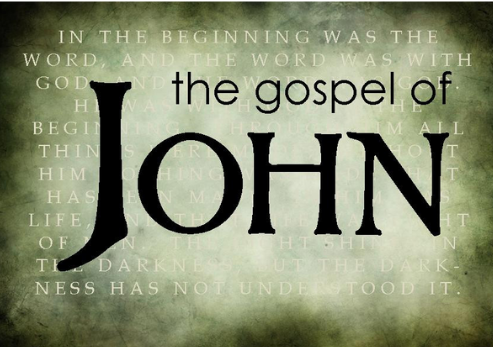| 36 But I said to you that you have seen Me and yet do not believe. 37 All that the Father gives Me will come to Me, and the one who comes to Me I will by no means cast out. 38 For I have come down from heaven, not to do My own will, but the will of Him who sent Me. 39 This is the will of the Father who sent Me, that of all He has given Me I should lose nothing, but should raise it up at the last day. 40 And this is the will of Him who sent Me, that everyone who sees the Son and believes in Him may have everlasting life; and I will raise him up at the last day." 41 The Jews then complained about Him, because He said, "I am the bread which came down from heaven." 42 And they said, "Is not this Jesus, the son of Joseph, whose father and mother we know? How is it then that He says, 'I have come down from heaven'?" 43 Jesus therefore answered and said to them, "Do not murmur among yourselves. 44 No one can come to Me unless the Father who sent Me draws him; and I will raise him up at the last day. 45 It is written in the prophets, 'And they shall all be taught by God.' Therefore everyone who has heard and learned from the Father comes to Me. 46 Not that anyone has seen the Father, except He who is from God; He has seen the Father. 47 Most assuredly, I say to you, he who believes in Me has everlasting life. 48 I am the bread of life. 49 Your fathers ate the manna in the wilderness, and are dead. 50 This is the bread which comes down from heaven, that one may eat of it and not die. 51 I am the living bread which came down from heaven. If anyone eats of this bread, he will live forever; and the bread that I shall give is My flesh, which I shall give for the life of the world." Questions to Consider:
| It is exceedingly difficult to communicate with people who are not sharing the same wave length. That would totally describe many of the exchanges between Jesus and the Jewish leaders. Jesus was so far outside their expectations of what the Messiah would be like, that they could not relate to Him or "see" who He was. The dialogue in these verses is another prime example of this ongoing struggle. Jesus continues to pound the same theme over and over. "I have been sent from heaven by My Father. I am on a mission for My Father. I am here to do the will of the Father." Jesus' words were falling on ears that were spiritually dead. Jesus said, v.36 "You have seen Me and yet do not believe." That is a powerful accusation, because they had either heard of or witnessed Jesus performing miracles. This reminds me of trying to witness to someone who is in a cult group. They have so bought into the thinking of the cult group that they cannot perceive, much less accept the truth. The Jewish leaders were absolutely blind when it came to Jesus. Rather than considering the possibility that Jesus was telling them the truth, they complained about the audacity of Jesus. v.41 "How dare He call Himself the bread which comes down from heaven." THE PROBLEM: Jesus was the bread which came from heaven. They acted as if Jesus was a poser. v.42 "Is not this Jesus, the son of Joseph, whose father and mother we know?" And they murmured among themselves. We all know of the virgin birth; I can only imagine how that conversation would have gone over with this crowd. They did know that Jesus came from a Jewish family. Can you imagine the uproar if Jesus had come from a Samaritan or a Gentile family? Where did they expect their Messiah to come from? Jesus continued to press the point of who He was. v.48 "I am the bread of life." He continued to point out to them that everyone who ate the manna in the wilderness was dead. Why did Jesus go there? He needed to impress upon them that they needed something that was superior to manna in order to live. He then went on to tell them that He was the "living bread" and that those that ate of this bread would live forever. Jesus ended with a prophetic word concerning His atoning work; that He would give His flesh to bring life to the world. |
|
0 Comments
|
RJ DugoneLead Teaching Elder: Archives
July 2020
Categories
All
|


 RSS Feed
RSS Feed
